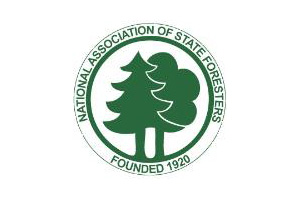WASHINGTON —The Environmental Protection Agency (EPA) today issued its decision that no additional regulations are needed to address stormwater discharges from forest roads under the Clean Water Act (CWA). This determination recognizes the success and continual improvement of state best management practices programs, which are proven to be effective in protecting water quality.
EPA was under a court order to respond to the remand in Environmental Defense Center, Inc. v. EPA (EDC v. EPA, 2003) to address whether the Act’s section 402(p)(6) requires additional regulation. EPA concluded that efforts to help strengthen existing programs addressing forest road discharges would be more effective than superimposing additional federal regulations.
State forestry best management practices (BMPs) are effective measures implemented during silvicultural operations on private lands to protect water quality. In its decision, EPA recognized that programs already exist nationwide to protect against water quality problems caused by discharges from forest roads. Monitoring shows that implementation rates average 91 percent nationwide and have been shown to be effective in protecting water quality when properly implemented. These programs employ a variety of approaches that are tailored to address regional and local differences.
“State forestry agencies applaud the Environmental Protection Agency’s (EPA) decision not to pursue additional regulations for stormwater discharges from forest roads. State Foresters agree with the decision that additional federal regulation is not necessary, would be duplicative of existing programs, and could divert resources away from currently successful on-the-ground stream protection efforts. Additional federal regulation would in fact discourage forest management, protection, and retention activities that enhance environmental quality,” said Jay Farrell, executive director of the National Association of State Foresters (NASF). NASF is a non-profit organization that represents the directors of the state forestry agencies.
“Forest owners are pleased EPA exercised its broad discretion under the Clean Water Act by keeping management of water quality programs at the local level through state Best Management Practices (BMPs),” said Dave Tenny, National Alliance of Forest Owners President and CEO. “BMPs are a proven tool for protecting the quality of our nation’s rivers and streams while taking into account the diversity of forest landscapes.”
“EPA’s decision confirms the added value of voluntary certification standards like the Sustainable Forestry Initiative, coupled with state forestry programs and federal laws, to ensure responsible forest operations and environmental protections,” said Kathy Abusow, President and CEO of the Sustainable Forestry Initiative Inc. “The SFI Program has long been a leader in the protection and enhancement of water quality, both through its standard requirements and the training of harvesting professionals. Today’s decision demonstrates that EPA can rely on this robust framework to achieve water quality goals.”
EPA anticipates the final notice will be published in the Federal Register in July 2016. Check back on the Forest Roads web page for the final notice at https://www.epa.gov/npdes/forest-roads.
To learn more about best management practices, view the NASF interactive water quality map detailing practices in each state at .
ABOUT SFI
The Sustainable Forestry Initiative® (SFI) advances sustainability through forest-focused collaborations. We are an independent, nonprofit organization that leverages four interconnected pillars of work: standards, conservation, community, and education. SFI works with the forest sector, conservation groups, academics, researchers, brand owners, resource professionals, landowners, educators, local communities, Indigenous Peoples, and governments. Collaborating with our network, we leverage SFI-certified forests and products as powerful tools to help solve sustainability challenges such as climate action, conservation of biodiversity, education of future generations, and sustainable economic development.
MEDIA CONTACT
Christine Leduc
VP, Communications and Government Relations
Sustainable Forestry Initiative
613-706-1114
media@forests.org

About the National Association of State Foresters
NASF represents State and Territorial Forester interests by influencing forest policy and leading efforts to optimize social, economic, and environmental benefits of trees and forests.
Media Contact
Amanda Cooke
NASF Communications Director
202-624-5417

About the National Alliance of Forest Owners
NAFO is an organization of private forest owners committed to advancing national policies that promote the economic and environmental benefits of privately-owned forests. NAFO membership encompasses more than 80 million acres of private forestland in 47 states. Working forests in the U.S. support 2.4 million jobs.